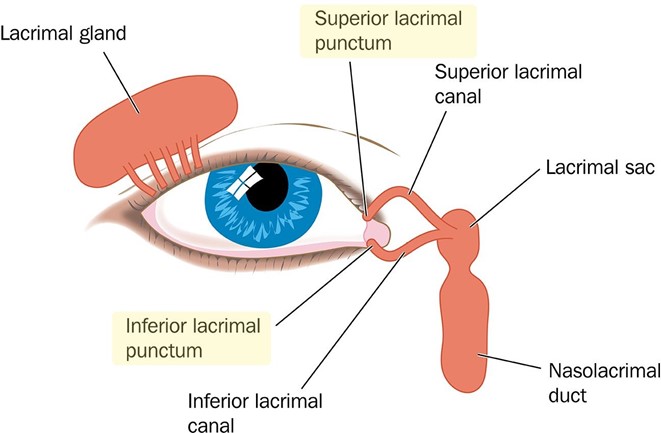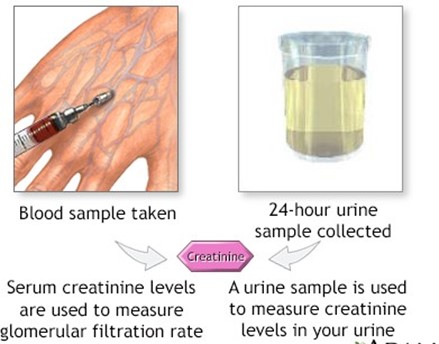A nurse is preparing to administer eye drops to a child. Which of the following actions should the nurse take?
Apply pressure to the lacrimal punctum after administering the drops.
Position the child side-lying on the bed before administering the drops.
Wipe from the outer to the inner canthus after administering the drops.
Flush the eye with normal saline solution before administering the drops.
The Correct Answer is A
When administering eye drops to a child, the nurse should apply gentle pressure to the lacrimal punctum (the small opening in the inner corner of the eye) after administering the drops. This can help prevent the medication from draining into the tear duct and being absorbed into the bloodstream, which can reduce systemic side effects.

Nursing Test Bank
Naxlex Comprehensive Predictor Exams
Related Questions
Correct Answer is C
Explanation
A 24-hour creatinine clearance test is used to evaluate how well the kidneys are functioning by measuring the amount of creatinine in the blood and urine over a 24-hour period. During the test, the client is asked to discard their first-morning void and then collect all urine for the next 24 hours.
Option A is incorrect because a protein-rich diet can affect the creatinine levels in the urine, which can result in inaccurate test results. Therefore, the nurse should advise the client to avoid a protein-rich diet during the collection period.
Option B is incorrect because blood glucose levels are not relevant to a 24-hour creatinine clearance test. Therefore, the nurse should not ask the client to record their blood glucose level each time they void.
Option D is incorrect because using an antiseptic towel to cleanse the perineal area can also affect the test results by introducing contaminants into the urine sample. Therefore, the nurse should advise the client to cleanse the perineal area with soap and water or an alcohol wipe.

Correct Answer is A
Explanation
During a mass casualty event, it is crucial for the nurse to assess and determine the acuity level (severity) and number of casualties who will be arriving at the healthcare facility. This information helps in planning and organizing resources, triaging patients based on their needs, and ensuring that appropriate care is provided to those who require immediate attention.
Delegating tasks to emergency health care specialists is a role that may be performed by a nurse in a leadership or supervisory position. However, the immediate priority for the nurse is to assess and triage incoming casualties.
Providing informational updates to members of the media is usually handled by designated spokespersons or communication specialists within the healthcare facility or incident command system. Nurses are primarily focused on patient care and should not be responsible for media communication during a mass casualty event.
Assisting in discharging stable clients to home is not directly related to the immediate response and care of casualties from a mass casualty event. The nurse's focus in such situations is primarily on the management of the incoming casualties and ensuring the availability of resources and care for those who require immediate attention.
Whether you are a student looking to ace your exams or a practicing nurse seeking to enhance your expertise , our nursing education contents will empower you with the confidence and competence to make a difference in the lives of patients and become a respected leader in the healthcare field.
Visit Naxlex, invest in your future and unlock endless possibilities with our unparalleled nursing education contents today
Report Wrong Answer on the Current Question
Do you disagree with the answer? If yes, what is your expected answer? Explain.
Kindly be descriptive with the issue you are facing.
